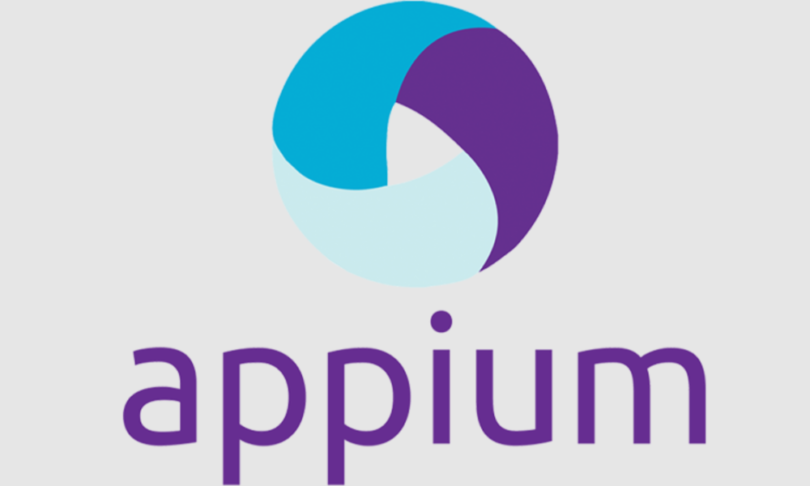In the context of Appium testing, “mobile elements” refer to the options present in the user interface of a mobile application. These elements are used to build some blocks for a specific application to simulate real device cloud architecture by using the Appium tool.
Appium is an open-source mobile application testing tool that supports both native and hybrid applications on various platforms such as Android, iOS, and Windows. The interaction process for testing refers to some steps involved to code the user actions on a specific mobile application by testing the software performance and available functions.
What is Mobile Element Interaction Process?
The mobile element interaction process usually refers to a series of steps that are involved with the user and user interface connection during the process of automation testing. The main goal of the process is to simulate the user actions to verify the real-time behaviour of the designed application. Here are some steps mentioned below associated to the approach followed by the LambdaTest platform:
Set The Test Process: You need to configure a proper test setup first in the cloud system with web interfaces or suitable APIs. Based on testing requirements, developers need to choose the components.
Element Locators: Here in this process, testers and developers can choose the Appium or any other testing frameworks to run the developed application on real devices in the cloud.
Interaction With Elements: Testers can perform various remote actions on real devices via the cloud if the device is physically present in their location. In this process, the automation script needs to be written into Appium to execute it on real devices.
Write The Proper Element State: This is the synchronisation process going to be performed on real cloud devices to bypass the exceptions in the time of automation testing.
Verify The Application Behaviour: It is the most important step which is responsible to tally the real-time and projected result of the developed application on real cloud devices.
Reporting The Errors: Testers need to examine the result after testing the software to flag and solve the errors.
Real Cloud Devices and Its Applications
Real device cloud refers to a cloud-based model, which provides access to a huge collection of datasets for physical mobile devices and web browsers. The devices should be real and physical, which enables both the development and testing teams for comprehensive testing across different platforms. Applications of the Real Cloud Devices are related as:
Mobile Application Testing Process: Real Cloud Devices enables the testers to analyse the application on various platforms, including Android, iOS, and Windows. On LambdaTest, the developers and quality analysis teams both have direct access to the cloud for testing the developed applications in a wide range to maintain consistency and compatibility across various platforms and devices.
Test The Website: Real cloud devices are also used to test the websites on different browsers to ensure the websites’ functionality and reactions with different platforms.
Testing On the Cross-Platform: By deploying real cloud devices, the developers can test their applications on multiple platforms in a simultaneous manner. It is particularly useful to test hybrid mobile applications on different platforms.
Fragmentation Of the Devices: The Android ecosystem is hugely fragmented. It contains a variety of devices with different qualities and hardware configurations. Real cloud devices always help to analyse the applications in a wide range to fix the compatibility issues.
Test and Record the Performances: Real cloud devices can be used to perform the testing process to evaluate the application behaviour under different conditions. It helps to identify the performance and perform the optimization process as per the application accordingly.
CI/CD Process of Integration: Continuous integration and deployment are the automated approach that reciprocates multiple times in a day. Each step triggers a build schema and allows the developers to receive quick feedback on the immunity of the base code through a pipeline.
Testing The Security Procedure: Real cloud devices are extremely useful to run the security procedure bypassing identity leakage and security risks related to mobile applications and websites.
User Experience Testing Process: Developers can evaluate the user experience of the developed application to ensure the compatibility of the application.
Testing The Geolocation Schema: These devices can be operated from various regions to enable the geolocation testing process with its location-based response.
Overall, the real cloud device offers the most cost-effective and efficient solution for mobile application testing with various devices and platforms. They assist the developers to produce high-quality applications by assuring the applications’ compatibility, functionality, and performance with a diverse range.
Appium sustainability with the Real Device Cloud
The Appium framework of LambdaTest has been trained to work on different cloud-based applications.
Cross-Platform and Device Abstraction Support: To run the test cases on the cloud-based product, it is really a good approach to use the Appium platform. The operation details are combined by the abstraction method on the basis of a standard interface to cut down the time consumption and effort.
Notable Protocols of the Web Driver: LambdaTest allows the user to test different codes to uplift the accessibility of the process.
Devices and Simulators: Appium is a cross-cloud platform that can work on real-time devices and simulators. It provides the application test facility to train the application in the real world.
Device-Specific Integration: The platform can handle the different interactions like GPS and its orientation to get the confirmation from the user side.
Appium tool creates a bridge between the testers and Real Cloud Devices to enable efficient interaction with the cloud-based devices. It empowers the testing team to perform a reliable testing process with a diverse range of real devices to sustain a positive user experience.
Appium Interaction with Real Cloud Mobile Elements
Appium is an automated mobile application testing architecture, which provides a way to mark and communicate with the existing mobile elements by using various locators and specific WebDriver commands. For the real device cloud, Appium creates test scripts in different coding languages to make the application accessible to a vast range of both developers and testers. Let’s see how Appium structure works and interacts with the mobile elements on real cloud devices-
Setup The Environment: You need to install Appium first on your local machine to configure your desired capabilities for the cloud based devices. These capabilities may include the platform type, device, platform version, etc.
Access To Cloud Provider: Sign up or log in to the testing service provider environment. Then you need to set up the projects and devices or the emulator configurations you want to use.
Capabilities Related To Appium: In the time of Appium environment configuration, you should provide the desired capabilities which are the perfect match for the device configuration.
Scripting: You need to write the automation script by using Appium API. They should contain the interactions with the mobile application elements for the cloud-based devices.
Run The Tests: Execute the Appium tests through the setup. Here Appium will connect the cloud infrastructure to execute the test script.
Check The Results: After the execution of the testing process, you can check the final result in the dashboard of the cloud testing model.
Interacting with mobile elements through Appium
LambdaTest is an artificial intelligence-enabled testing platform and execution tool that lets you perform the Appium automation process on online browsers. It consists of 3000+ real devices and browsers. With LambdaTest, the new-age developers & testers can accelerate their time to demand and assure a quality web experience.
Here are the step-by-step processes, of how you can perform the mobile element interaction process on LambdaTest through Appium.
Add Username and Password: You need to create an account or provide the login credentials in the cURL.
Use The Application File: Enter the application file path to merge it with the cloud system. With this you can easily clone your application on LambdaTest.
Authentication Setup: You need to purchase a plan to access the automation dashboard.
Write The Automation Prompt: With the updated application URL, username and password; you need to develop a test script for the sample application.
Configure The Test Capabilities: For your application, you can update the custom capabilities in the test script.
Execute The Test: Open the terminal to write to the command prompt with navigation. The commands are different for the different OS. This will prepare the LambdaTest platform for the test.
Review Results On LambdaTest: After conducting the testing process you need to log in to check the automation results.
Future of The Mobile Element Interaction
Device Advancement and Better Operating System Support: As mobile devices and operating systems are evolving continuously, for that here on the LambdaTest, you are allowed to use the latest versions of Android and iOS to find better solutions related to it.
Improved Appium Web Drivers and Features: As a community grows along its way, Appium will grow in the future and will come with new features and updates. This may include more reliable elements, strategies, and gestures with better treatment.
Improved Testing Process: As Appium can work on real cloud devices, new emerging technologies like AI and machine learning will take a big role in the future. They will increase the ability of the test execution processes with advanced debugging capacity.
Increased Performance: The complex process of the mobile applications needs to be followed by faster execution in the future. It may involve various optimization processes with parallel test execution.
Deeper Integration with CI/CD Pipelines: CI/CD pipelines are involved with tighter interactions to improve the reporting capabilities with easier management.
Boost the Cross-Browser Testing on The Cross-Platforms: LambdaTest supports the cross-browser testing process and it is expected to support more new testing processes in the future. These will enable the testing team to ensure the product quality consistently.
Conclusion
Since technology evolves rapidly, the future of the cloud and mobile element interaction process on LambdaTest has become more innovative. In today’s context, it is essential to keep an eye on the official announcements and releases from the real cloud device and Appium. Overall, the future of Appium and real cloud devices looks promising as per the increasing demand. It is cost-effective and able to handle various mobile and web applications efficiently. By keeping all the achievements in mind, the cloud devices will play a major role by ensuring the development quality and reliability for mankind.








Leave a Comment
You must be logged in to post a comment.